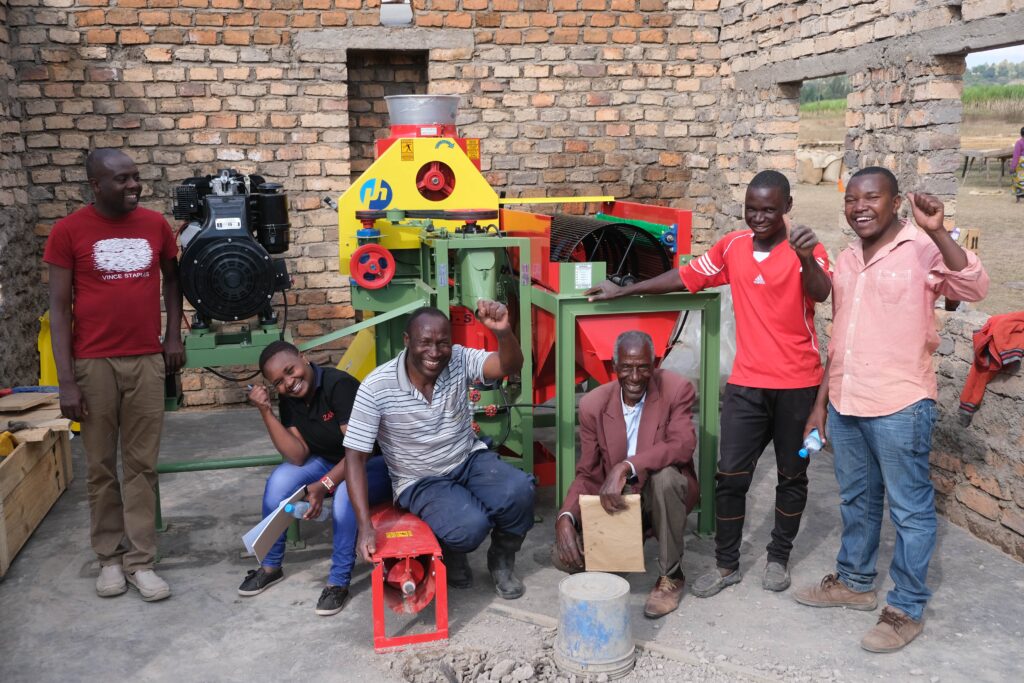InterAmerican Coffee is thrilled to be entering the second year of its three-year commitment to the Tanzania Igale Coffee Club.
One of the biggest issues the coffee industry faces is sustainability – not only environmental but economic. Coffee cultivation is difficult, prices are volatile, and children of coffee farmers often move to urban areas or abroad in search of education or employment opportunities to lift them out of poverty. Southern Tanzania suffers from particularly high rates of unemployment, especially compared to its neighbors.
With access to the right resources, however, many coffee farmers can transform their coffee farms into truly profitable businesses. (NKG Bloom is rooted in this idea.) In the spirit of offering job skills and opportunities to the teenage children coffee producers, our colleagues at NKG East Africa created the Tanzania Coffee Club.
An after-school offering, the clubs are established with high schools that neighbor farmer groups, or AMCOS (the local term for cooperative, abbreviated from Agricultural Marketing Cooperative Society).
Holistic Training
Over three years of intensive training, participants learn about everything from seedling nurseries to mills, with equal attention paid to accounting and record keeping. They then graduate with an understanding of the entire coffee value chain, as well as the skills and knowledge to make informed choices that will increase their product’s value at each link.
To encourage agency within the students, each is given 20 seedlings to plant on their parents’ farm. With their own plants to tend to, they’re able to put into action the education they received, employing their chosen methods for pruning, fertilizing and integrated pest management. In putting their skills to use, they (and their parents) see the results firsthand. All proceeds from the sale of that coffee go directly to the students, cementing the outcome of their hard work with proportionate returns.
Far from entrenching young people in another generation of economically unsustainable coffee production, the Coffee Club’s goal is to equip them with the tools for building sustainable farming livelihoods, should they choose that option. The program teaches entrepreneurship, agricultural best practices and financial literacy – all essential facets of the coffee-growing business and beyond.
“If young people want to go to university, that’s wonderful. But if they decide to stay in the area, at least they’ll have knowledge about coffee — and really, more knowledge than the average coffee farmer — and a way to earn an income,” says Christophe Brinker, a trader at NKG Ibero Kenya.

AMCOS members Feston Swasaka, Chaka Mwambuya and Mzee Mwamlima (from left to right), celebrating the arrival of the new Penagos.
Tanzania Igale
Igale is the AMCOS affiliated with the school that InterAmerican is sponsoring. Its 443 producers come from the villages of Idiwili, Ilomba, Iyula, Idunda, Ipyana and Igale, in the Mbozi district of Songwe.
Igale AMCOS has been investing in its infrastructure, most recently a Penagos eco-pulper. This equipment will transform the way the group processes, given that they have previously milled home-processed parchment deliveries from local producers. The hope is to increase quality (by controlling more steps in the value chain), as well as to attract more local deliveries by offering services to local producers.
This is Igale’s third year utilizing the eco-pulper, and InterAmerican’s Quality Control team is already seeing the results. In Hoboken last week, on a table of Tanzania microlots, the Igale was the highest-scoring, shining through with notes of honey, chocolate, cinnamon and apricot, complementing a smooth body. Fresh crop of this very special coffee is due to arrive in March. In the meantime, current crop, which is stored snuggly in GrainPro, is still performing beautifully. We hope you’ll ask your trader for a sample! •